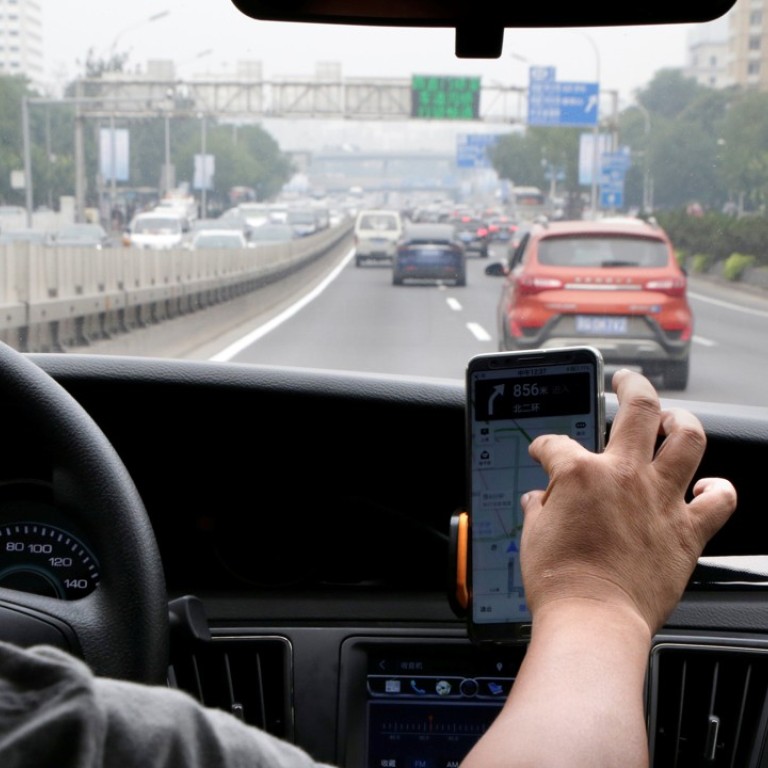
China watchdog finds string of safety problems, monopoly concerns following ride-hailing inspection
Ride-hailing has become big business in the world’s most populous country but safety concerns are mounting after murders
China’s Ministry of Transport has discovered safety issues, poor management of emergency situations, the potential for illegal operations and broad monopoly concerns following an inspection of ride-hailing platforms in the country.
The on-site checks came after the second alleged rape and murder last month of a female passenger in three months by a driver on China’s largest ride-hailing site, Didi Chuxing, which provoked a public outcry and a letter of apology from the company’s senior management.
“We have found ride-hailing platforms, including Didi, have many issues and risks associated with operations management, product compliance, emergency mechanisms, information protection and public security,” said Wu Chungeng, a spokesman for the transport watchdog, at a briefing on Thursday.
The ministry launched on-site inspections at eight major ride-hailing operators, including Didi, Shouqi, UCAR, Caocao Car, Meituan Dianping and DiDa Chuxing earlier this month.
Wu said the safety risk behind hitch riding – a service that pairs private car owners with passengers heading to the same direction – is “huge”, while platforms in general have weak emergency mechanisms. “There’s also suspected monopoly issues within the industry,” he added.

Ride-hailing, and the technology behind it, has become big business in the world’s most populous country and Didi became celebrated in China for beating back Uber in a subsidy-backed price war.
However, a series of attacks on women have brought safety issues to the fore for both passengers and drivers, and Didi’s founder Cheng Wei and president Jean Liu apologised in a statement last month for letting “vanity” overtake the company’s “original beliefs”, vowing to prioritise safety.
“Ride-hailing has brought new experiences, new options and great convenience to the public, and there should be full affirmation of the reforms it has brought to the taxi industry,” said Wu. “However, there remains several issues [of concern], including the latest two major security incidents.”
Last month, police in Yueqing city, in China’s eastern Zhejiang province, found the body of a 20-year-old female surnamed Zhao, and arrested her Didi driver who confessed to her rape and murder. In May, another woman, aged 21, was raped and killed in Zhengzhou, in central China, allegedly by an unregistered Didi driver whose body was later found in a river.
In a statement released on Thursday, Didi said it “strongly supports and appreciates” the issues raised by the authorities and rectification requirements, and will continue to enhance safety guarantee mechanisms and compliance with the regulations.
Other measures include upgrading an in-car panic button linked directly to police, and tightening up background checks of drivers by using a risk assessment model based on big data and facial recognition technology.
Its Hitch service remains suspended, following a one-week halt of its all taxi-hailing and ride-sharing services between 11pm to 5am to phase in software upgrades for the new measures.
Starting from September 15, all drivers that provide late-night services on its platform should have first served as a regular driver on the platform and completed over 1,000 trips.
Didi has also pledged to spend 140 million yuan (US$20 million) to strengthen its customer service team, company founder and chief executive Cheng Wei said in a letter to employees amid the overhaul.

